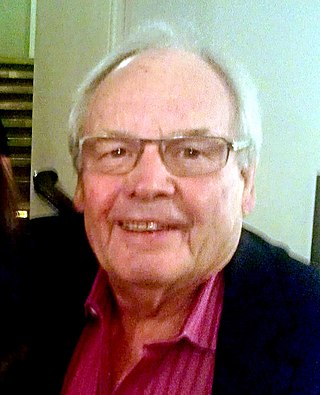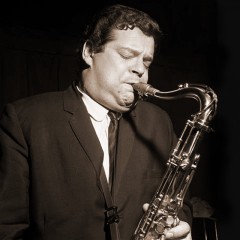Related Research Articles

Decca Records is a British record label established in 1929 by Edward Lewis. Its U.S. label was established in late 1934 by Lewis, Jack Kapp, American Decca's first president, and Milton Rackmil, who later became American Decca's president. In 1937, anticipating Nazi aggression leading to World War II, Lewis sold American Decca and the link between the U.K. and U.S. Decca labels was broken for several decades. The British label was renowned for its development of recording methods, while the American company developed the concept of cast albums in the musical genre.

Gaetano Alberto "Guy" Lombardo was an Italian-Canadian-American bandleader, violinist, and hydroplane racer.

Mercury Records is an American record label owned by Universal Music Group. It had significant success as an independent operation in the 1940s and 1950s. Smash Records and Fontana Records were sub labels of Mercury. Mercury Records released rock, funk, R&B, doo wop, soul music, blues, pop, rock and roll, and jazz records. In the United States, it is operated through Republic Records; in the United Kingdom and Japan, it is distributed by EMI Records.

Impulse! Records is an American jazz record label established by Creed Taylor in 1960. John Coltrane was among Impulse!'s earliest signings. Thanks to consistent sales and positive critiques of his recordings, the label came to be known as "the house that Trane built".
Manchester's music scene produced successful bands in the 1960s including the Hollies, the Bee Gees and Herman's Hermits. After the punk rock era, Manchester produced popular bands including Joy Division, New Order, The Smiths and Simply Red. In the late 1980s, the ecstasy-fuelled dance club scene played a part in the rise of Madchester with bands like the Stone Roses, Inspiral Carpets and Happy Mondays. In the 1990s, Manchester saw the rise of Britpop bands, notably Oasis.

Anthony Peter Hatch is an English composer for musical theatre and television. He is also a songwriter, pianist, arranger and producer.
Philips Records is a record label founded by the Dutch electronics company Philips and the Dutch-American largest record label company Universal Music Group. It was founded as Philips Phonographische Industrie in 1950. In 1946, Philips acquired the company which pressed records for British Decca's Dutch outlet in Amsterdam.

Edward Brian "Tubby" Hayes was an English jazz multi-instrumentalist, best known for his virtuosic musicianship on tenor saxophone and for performing in jazz groups with fellow sax player Ronnie Scott and trumpeter Jimmy Deuchar. He is widely considered to be one of the finest jazz saxophonists to have emerged from Britain.
David Allan "Kid" Jensen is a Canadian-born British radio DJ and television presenter. Born in Victoria, British Columbia, Jensen began as a radio DJ on Radio Luxembourg. Jensen was later a broadcaster for the BBC from 1976 to 1984, as a host on BBC Radio 1 and presenter on the TV music programme Top of the Pops from 1977 to 1984. Jensen has also hosted and presented for Capital FM and ITV among other stations.
Alex Wharton, later also known as Alex Murray, was part of the singing duo the Most Brothers with Mickie Most, and later, co-manager and producer of the Moody Blues.

Kenneth Colyer was an English jazz trumpeter and cornetist, devoted to New Orleans jazz. His band was also known for skiffle interludes.
Jeffrey Ovid Clyne was a British jazz bassist.
Philip William Seamen was an English jazz drummer.
Anthony F. J. Barrow was an English press officer who worked with the Beatles between 1962 and 1968. He coined the phrase "the Fab Four", first using it in an early press release.
Anthony John Kronenberg, known professionally as Tony Crombie, was an English jazz drummer, pianist, bandleader, and composer. He was regarded as one of the finest English jazz drummers and bandleaders, an occasional but capable pianist and vibraphonist, and an energizing influence on the British jazz scene over six decades.
Sidney Denis Preston was a British record producer, recording studio owner, radio presenter and music critic. He was particularly influential in the British jazz and associated skiffle scenes from the 1940s to the 1960s.

The Flamingo Club was a jazz nightclub in Soho, London, between 1952 and 1969. It was located at 33–37 Wardour Street from 1957 onwards and played an important role in the development of British rhythm and blues and modern jazz. During the 1960s, the Flamingo was one of the first clubs to employ fully amplified stage sound and used sound systems provided by ska musicians from the Caribbean. The club had a wide social appeal and was a favourite haunt for musicians, including The Who.

Frank Holder was a Guyanese jazz singer and percussionist. He was a member of bands led by Jiver Hutchinson, Johnny Dankworth and Joe Harriott.
R&B Showcase Radio Show is a program originally created and hosted by American radio personality Tim Marshall. The show began in 1986, and features classic to contemporary rhythm and blues music with a focus on preserving the legacy of the pioneer recording artists. The broadcasts include music news, show reviews, concert updates and in-depth interviews with independent and national acts. International music journalist Larry Cotton joined the program as co-host in 2003.
Ember Records was a British independent record label established by Jeffrey Kruger.
References
- ↑ Jazz Journal International, vol.61, 2008, p.16
- 1 2 David Taylor, British Modern Jazz: Tony Hall Archived 2013-06-16 at archive.today . Retrieved 18 May 2013
- 1 2 3 Charles Waring, The Hall way, Record Collector, no.413, April 2013, pp.56-63
- 1 2 3 4 Peter Robinson, "Tony Hall Obituary", The Guardian, 4 July 2019. Retrieved 19 August 2019